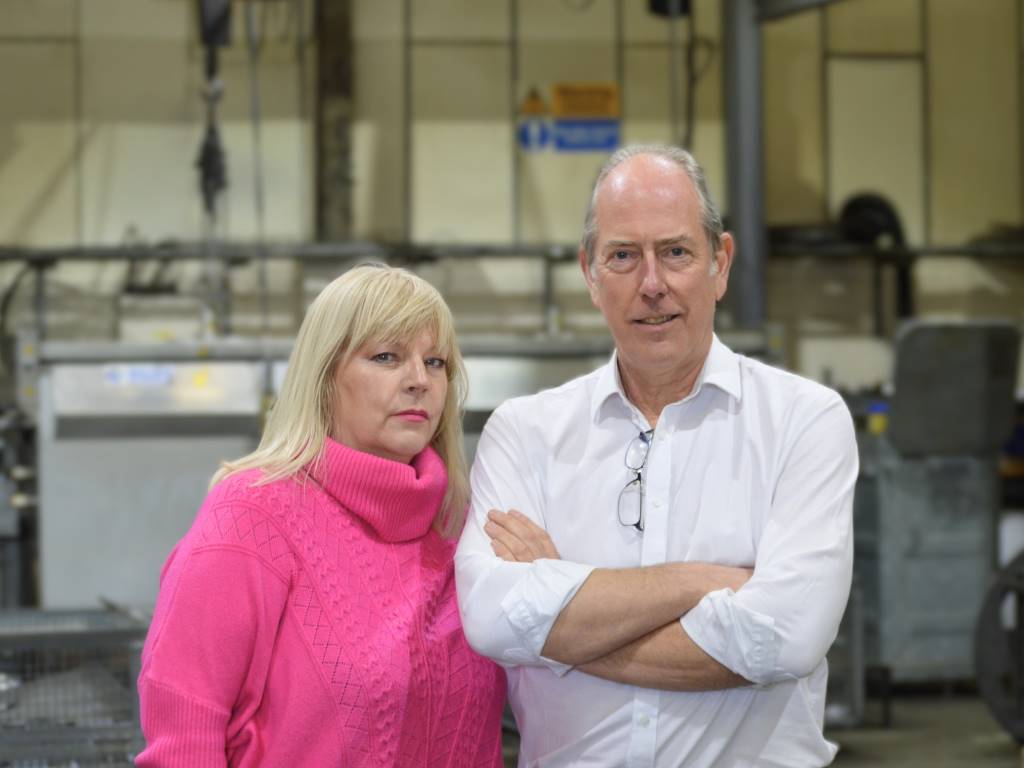Strength of British blockchain industry revealed in new report

An in-depth market research report mapping the UK’s distributed ledger technologies (DLT) landscape has revealed the potential of this new blockchain technology to disrupt industries, including manufacturing.
New research from Digital Catapult, one of the UK’s leading advanced digital innovation centres, discovered a vibrant ecosystem active across a wide range of sectors, with British companies at different stages of development and numerous industry-spanning applications to help lower costs, enable more efficient public services and improve supply chain traceability.
After a difficult start (Bitcoin’s early associations with the dark web and very few examples of DLT in use outside of cryptocurrency) the UK became globally recognised as a leader in DLT in 2015. During the intervening three years, rapid changes have seen the UK’s early lead potentially slip behind China, Singapore, Malta and the USA, countries which have been more agile in their approach to DLT pioneers.
The report shows how capturing the early promise, and smoothing out the road to success, will push the UK back into a leadership position.
Jeremy Silver, CEO, Digital Catapult, commented: “Digital Catapult is taking an active step to improve understanding of DLT in multiple sectors for the wider benefit of the UK economy. To do that, and encourage further adoption of this technology, we must dispel the myths, cut through the hype, and educate organisations outside of the financial services sector to the varied applications of DLT and how we can help them to de-risk innovation.”
The new research report, Blockchain in Action: State of the UK Market, surveyed over 260 UK DLT companies, gathering concrete data on the breadth of the ecosystem for the very first time. It highlights the opportunities from adopting blockchain and other DLT, as well as identifying the major challenges which must be addressed if the UK is to benefit from this high-potential technology.
The report was launched alongside DLT Field Labs, a new initiative from Digital Catapult that brings together technology businesses, industry partners and researchers to deploy and test the latest distributed ledger technology in real world (and close to real world) environments. DLT companies are grappling with an unclear and fragmented regulatory landscape, amid damaging preconceptions about the viability of their sector and lack of authoritative legal advice. As such, the first DLT Field Labs will look at barriers in the construction industry that blockchain and other DLT solutions could help to overcome.
Law firm Mishcon de Reya has signed up as a lead sponsor for the DLT Field Labs initiative. Dr Alastair Moore, head of analytics and machine learning, said: “We’re thrilled to support Digital Catapult in its exploration of the practical applications of blockchain and other distributed ledger technologies, not just in the legal profession but throughout any number of industries where there is opportunity for impact. Our hope is that by being a part of the DLT Field Labs we can help to accelerate the use and comprehension of DLT in our industry and, ultimately, provide better advice to enable UK DLT companies to fulfil their potential.”
Key findings:
- The UK’s DLT ecosystem can be divided into four major categories: distributed ledger developers (13%), dApp developers (35%), service providers (37%), and centralised systems (15%).
- DLT is not confined to the financial services sector – the companies we spoke to are active across a wide range of sectors from manufacturing to the creative industries
- 38% of the companies interviewed feel that their technology could be applied to all vertical markets, not just FinTech
- 74% of DLT companies have products ready to demonstrate and are already generating revenue
- 80% had used personal funds to start their companies, and are often led by mature business leaders using their own money to found the company.
- 41% had raised a traditional seed round of investment
- 25% were not currently seeking investment
- 74% of companies expressed regulatory uncertainty as their most pressing challenge, with the irreconcilability of GDPR with permissionless, public blockchain development and a lack of clarity around ICO regulation quoted as key concerns.
- Over half (54%) of companies have struggled to open a UK bank account with several resorting to opening multiple accounts around the world
- Almost half (45%) of companies consulted required additional specialist legal advice to bring their companies to fruition. Many are concerned that lawyers do not understand the intricacies of the technology and believe they have received poor advice around ICOs and intellectual property protection.

Case studies
The report highlights a number of case study examples of British companies already successfully using Distributed Ledger Technologies:
Founded in 2015 by Leanne Kemp, Everledger is a global emerging technology enterprise that uses blockchain for real-world applications in industries like manufacturing where transparency, trust and provenance matter most.
This is delivered through Everledger’s proven and scalable blockchain-enabled platform, expertise in emerging technologies as well as its deep domain knowledge through its strategic industry partnerships. Everledger combines these with the latest forensic approaches to give physical assets an identity, enabling items to have proof of authenticity.
As the first in the world to successfully turn a proof-of-concept blockchain platform into a scalable commercial application for the diamond industry, Everledger is today trusted by a growing number of industries – from diamonds to coloured gemstones and critical minerals and metals - to enable more efficient, transparent and collaborative business models.
Founded in 2014 by Jessi Baker, Provenance is a platform that empowers brands to take steps toward greater transparency by communicating the origin, processes and impacts of the products they make. Provenance began with a frustration for how little we know about the things we buy. Opaque supply chains are devastating environments and compromising the wellbeing of people, animals and communities. With Provenance’s platform, companies can easily gather and verify claims, and create the story of their products before communicating these to shoppers through their channels, both online and in-store.












